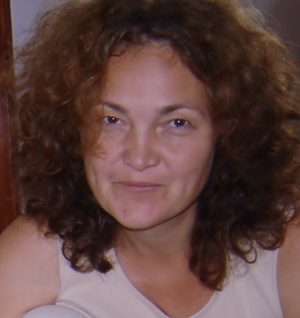
Anna Krisztina Berecz
At 12 years old, Anna Krisztina Berecz first learned about the Holocaust from Miklos Nyiszli’s book Auschwitz: A Doctor’s Eyewitness Account. The experience was so haunting that she decided to forget it as quickly as possible.
Years later, however, Berecz realized it was important to know the stories of the past in order to construct a better future, so she began learning about the Holocaust again, this time as a teacher herself. And in just two months, she will travel to Poland on the Auschwitz: The Past is Present professional development program led by USC Shoah Foundation and Discovery Education to commemorate the 70th anniversary of the liberation of Auschwitz.
The educators from 11 different countries representing four continents will attend a four-day workshop designed to deepen their understanding of the historical landscape of Poland before, during and after the Holocaust and increase participant knowledge of authentic sites including Auschwitz-Birkenau.
Berecz teaches English at Liceul Teoretic “Tamasi Aron” in Odorheiu Secuiesc, Romania, and was part of last year’s Teaching with Testimony in the 21st Century program in Hungary. She said her interest learning about the Holocaust was revived when, last year, she read a book about its effect on the Jewish population in her own area. Her own grandfather was mentioned in the book as someone who tried to help others.
“I have never thought of the Holocaust as something happening right here in my home town. Reading this book put me into a new reality,” Berecz said.
She said she is not sure what to expect during The Past is Present, but is certain that it will have an impact on her and her teaching.
“What I hope is that I will get more insight somehow and I can become more authentic and genuine when talking about these things to my students,” she said.
It is very important for people to learn from Auschwitz, she said, so that humanity can avoid making the same mistakes in the future. Students must learn the power of love and empathy, which can “vaccinate” them from the evils of hatred and indifference.
During the program, the teachers will learn how to use USC Shoah Foundation testimony of Holocaust survivors to teach about the Holocaust and other topics. Berecz said the power of testimony lies in its ability to help students care about the victims and survivors of the Holocaust as real people and connect to their tragic stories.
“The personal stories of people with the petty details of everyday life, the portrait of their family members make us realize how much we have in common with them. They are no longer members of a group that is so much different from us,” Berecz said. “They are people just like us, individuals with fears hopes and dreams. Their story becomes our story.”